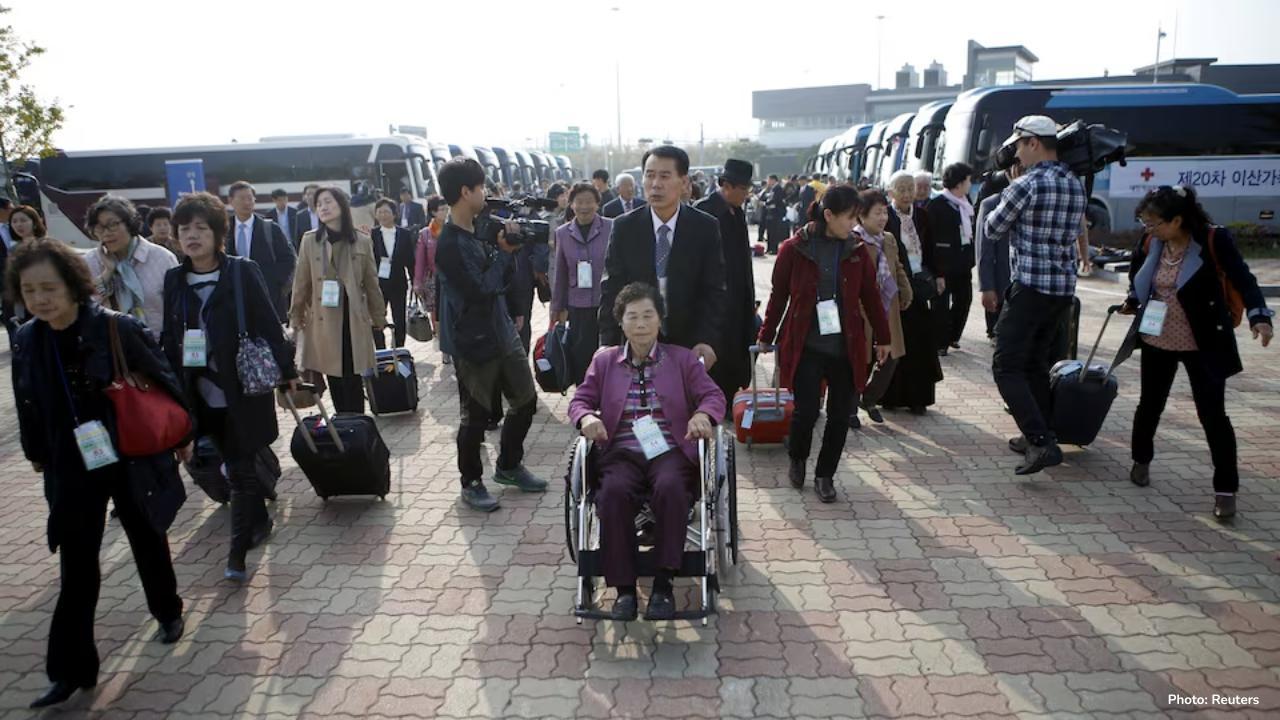
Post by : Monika
The Czech Republic is holding parliamentary elections on October 3 and 4, 2025, with millions of citizens going to vote to decide the country’s next government. These elections are considered crucial for the nation’s political and economic future.
Andrej Babiš, a billionaire businessman and former prime minister, is leading the race with his party, the ANO Movement. Polls indicate that ANO is likely to win the most seats, but securing a majority government will require forming alliances with other political groups.
About Andrej Babiš and ANO Party
Andrej Babiš is a well-known figure in Czech politics and business. He founded the ANO party, which has grown into one of the country’s strongest political forces. Babiš has served as prime minister before, from 2017 to 2021, and his tenure was marked by both economic achievements and controversies.
Babiš’s leadership is often described as populist, focusing on direct communication with voters, promises to improve living standards, and pledges to challenge traditional political elites. His appeal to the public is partly due to his wealth, business experience, and image as a problem-solver who can bring change to the Czech Republic’s government.
Babiš’s Election Promises
Babiš has presented a clear set of promises to attract voters across the country. These include:
Higher Wages: He plans to raise salaries for workers in both public and private sectors. Babiš argues that higher wages will help families manage the rising cost of living and boost economic growth.
Tax Cuts: The ANO party proposes reducing taxes for individuals and businesses. Babiš believes that lower taxes will leave more money in people’s pockets and encourage investment in the country’s economy.
Energy Price Control: Babiš wants to limit energy prices for households. Rising energy costs have been a major concern for Czech citizens, especially following global energy market fluctuations caused by the war in Ukraine and the pandemic.
Pension Reforms: Babiš suggests lowering the retirement age to 65, which he argues will allow workers to enjoy their retirement earlier while creating more job opportunities for younger people entering the workforce.
Reduced Support for Ukraine: Unlike the current government, Babiš has promised to decrease military aid to Ukraine and oppose new NATO defense spending targets. He argues that the Czech Republic should focus more on domestic priorities than foreign conflicts.
These policies are designed to appeal to voters who are concerned about everyday expenses, job security, and the economic impact of global conflicts. However, critics warn that such lavish spending could increase the national debt and strain government finances, potentially causing long-term economic problems.
Challenges Facing Babiš
Even though ANO is leading in opinion polls, forming a stable government will not be easy. Winning the largest number of seats does not automatically guarantee a majority in parliament. Babiš may need to form alliances with smaller parties, including some with extreme views, which could create difficulties in passing legislation and maintaining political stability.
Babiš also faces legal challenges, including a fraud trial linked to EU funds and concerns over conflicts of interest due to his extensive business holdings. While these legal issues have not prevented him from participating in elections, they could affect his credibility and ability to govern effectively if he returns to power.
Economic and Social Context
The elections come at a time of economic uncertainty for the Czech Republic. Inflation has affected the cost of food, housing, and energy, reducing real incomes for many families. Citizens are frustrated with the government’s handling of economic recovery following the pandemic and the war in Ukraine.
These economic pressures have contributed to the growing popularity of Babiš and his promises to improve wages and reduce costs for households. Many voters see him as a leader who can address their immediate concerns and improve their quality of life.
Voter Sentiment and Public Opinion
Public opinion in the Czech Republic is divided. Supporters of Babiš believe that his experience as a businessman and previous prime minister makes him capable of managing the country’s economy effectively. They also appreciate his direct approach and his focus on domestic issues, such as wages, energy, and pensions.
However, critics argue that Babiš’s policies are short-term solutions that may harm the country in the long run. Some worry that his reduced support for Ukraine could damage the Czech Republic’s international reputation and weaken ties with NATO allies. Others fear that alliances with extreme parties could shift the country toward eurosceptic and nationalist policies, affecting relations with the European Union.
International Reactions
The international community is closely watching the Czech elections. Analysts note that Babiš’s potential return to power could influence regional politics in Central Europe. His stance on NATO and the EU may affect alliances with neighboring countries, including Germany, Poland, and Slovakia.
In addition, his approach to Ukraine is significant amid the ongoing war. Reduced Czech support for Ukraine could impact NATO’s collective defense efforts and weaken European unity in responding to the conflict. This makes the Czech election results not only important for the country itself but also for the broader region.
Formation of the New Government
If Babiš’s ANO party wins the most seats, he will still need to negotiate coalitions with other parties to form a government with a majority in parliament. This process may involve compromises on policy issues, including tax cuts, pension reforms, and foreign aid.
The negotiations could be challenging, especially if potential coalition partners have extreme or conflicting views. Forming a stable government will require political skill, compromise, and a careful balance between domestic priorities and international responsibilities.
Historical Context of Czech Politics
The Czech Republic has a parliamentary system where multiple parties compete for power. Since its independence in 1993, the country has experienced frequent changes in government and coalition-building challenges. This history means that no single party has dominated politics for long, and alliances are often necessary to govern effectively.
Babiš’s political career is also historically significant. As a former businessman turned prime minister, he represents a trend in European politics where wealthy individuals leverage their success and public image to gain political power. His rise reflects both the opportunities and controversies associated with populist leadership in modern democracies.
Impact on Citizens
For Czech citizens, the election results will directly affect daily life. Higher wages and lower taxes could improve household finances, while pension reforms may influence retirement planning for millions. Energy price controls are particularly important for families struggling with rising utility costs.
At the same time, the government’s approach to foreign policy and international alliances will have broader implications, affecting the country’s security, trade, and diplomatic relations. Citizens are therefore paying close attention not only to domestic promises but also to how Babiš will manage the country’s place in the world.
Looking Ahead
The outcome of these elections could shape the Czech Republic’s political landscape for years to come. A victory for Babiš may shift the country toward more populist and eurosceptic policies, potentially affecting its role in the European Union and NATO.
However, forming a stable government will require compromise and negotiation. Even if ANO wins the largest number of seats, the success of the government will depend on coalition-building, effective policymaking, and addressing the economic and social concerns of citizens.
The world is watching as the Czech Republic holds these elections. The results will determine the country’s domestic policies, economic priorities, and foreign relations for the coming years. Voters’ decisions will influence whether the nation moves toward stability, reform, and growth or faces continued political and economic challenges.
The Czech parliamentary elections of 2025 are a pivotal moment for the nation. Andrej Babiš and his ANO party promise to focus on domestic concerns such as wages, pensions, taxes, and energy prices while reducing support for Ukraine. His leadership style, populist appeal, and business background make him a strong contender, but legal challenges and coalition dynamics may affect his ability to govern.
Czech citizens are at a crossroads, deciding whether to prioritize immediate economic relief and populist promises or maintain continuity in foreign policy and international commitments. The results will have profound implications not only for the Czech Republic but also for Europe and NATO, highlighting the interconnectedness of domestic politics and international relations.
As the country votes, the world waits to see whether Babiš will return to power and how his policies will shape the Czech Republic’s future, both at home and abroad. The election outcome will define the direction of the country for years to come, impacting citizens’ lives, political stability, and the nation’s standing in Europe.
Czech Republic elections 2025 Andrej Babiš ANO party Czech political leaders










AI Startup Valuations Spark Concerns of Market Bubble Amid Funding Surge
AI startups are attracting record investments, but experts warn that inflated valuations may signal

Ambulances Line Up as Indonesia Searches for Students After School Collapse
A school in East Java collapsed during afternoon prayers. Dozens of students are trapped, and rescue

Typhoon Bualoi Kills 51 in Vietnam; Banks Asked to Aid Affected Firms
Typhoon Bualoi caused heavy damage and killed 51 people in Vietnam. The central bank has urged banks

South Korea's President Urges North Korea to Resume Family Reunions
South Korean President Lee Jae Myung calls on North Korea to restart family reunions for those separ

Finnish Court Rules It Can't Prosecute Crew Over Baltic Sea Cable Damage
A Finnish court has decided it doesn't have the authority to prosecute the crew of the Eagle S oil t

Czech Republic Votes: Billionaire Babiš Promises Higher Wages, Less Support for Ukraine
In the Czech Republic's upcoming elections, billionaire Andrej Babiš's party leads with promises of